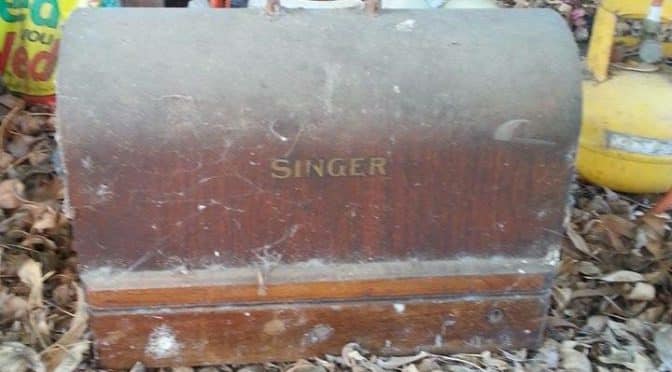When my friend Kaye messaged me recently and said this machine might be available and would I like it? Well!!! What is a girl to say? Of course! I exclaimed, I can find a home for it. She said that someone was emptying out their house and if it was still there the next day …..then she would pick it up for me. She said she had no idea, what was inside as there was no key to open it!
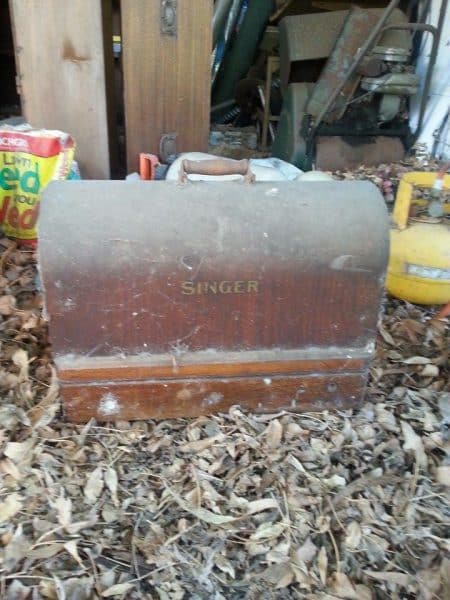
Isn’t that a great shot! So a couple of days later I went to pick it up. There was no key so I said to Peter we need a screwdriver to open it so he gladly obliged, and this is what we found.
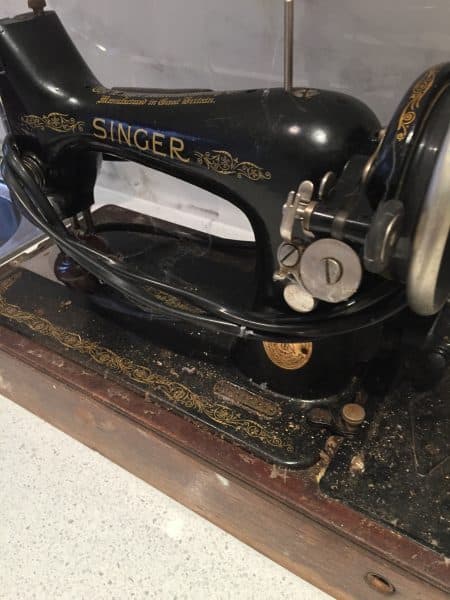
It’s a very pretty little electric Singer 99K, 3/4 machine. It was heavily adorned with cobwebs, plenty of spider excrement, leaves and dust. Unfortunately there was no knee control present. I’m pretty sure that people would see these knee controls and wonder what on earth they are? They probably get sent unwittingly to the tip. I told Kaye, that’s alright, I have a contact and with any luck…….I can get one (fingers crossed).
On a positive note it did have a needle plate. Anecdotally one of the most common problems I have noticed with these 99s is that more often than not, the needle plate is missing. So I packed it up and took it home.
I messaged my contact and asked him if he would have a knee control for this machine… he said he would get back to me….
It’s always exciting to open the hood and see what is underneath! This is a Singer 99K. It was made on April 7th, 1948 and was one of 15000 as per the ISMACS data base.
From what I can ascertain, it’s quite possible that this machine has not been touched for the best part of 50 years. I only know that because I had the privilege of seeing the evolution of the machines this lady bought after this one. Also I noticed in the first clean that the bobbin winder was set in the engaged position. As it turns out, it was not working, this may have contributed to the abandonment of use a long time ago?
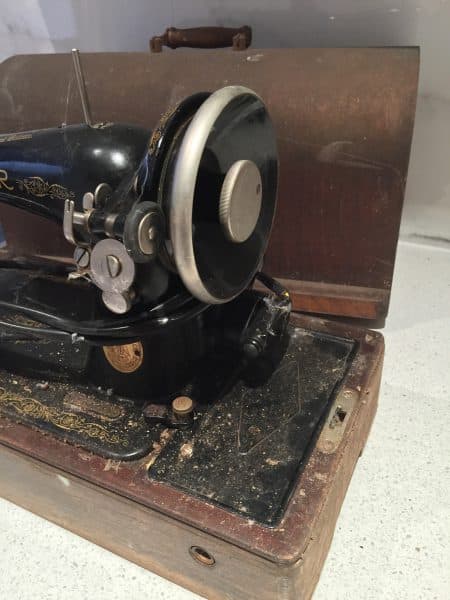
Unfortunately it came with no accessories, books, key or leg press (knee control).
Cleaning Up Vintage Singer 99K
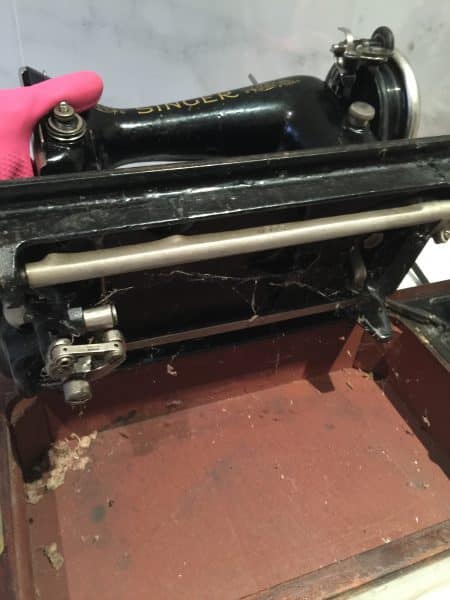
Now the obvious question…does it work? Luckily I was able to get a leg press controller so the next thing was to plug it in and see if it works? I cleaned all the initial dirt off with a damp cloth with detergent.
TIP
It is important to understand that there is a risk in buying old electric machines such as this. They should be rewired for safety.
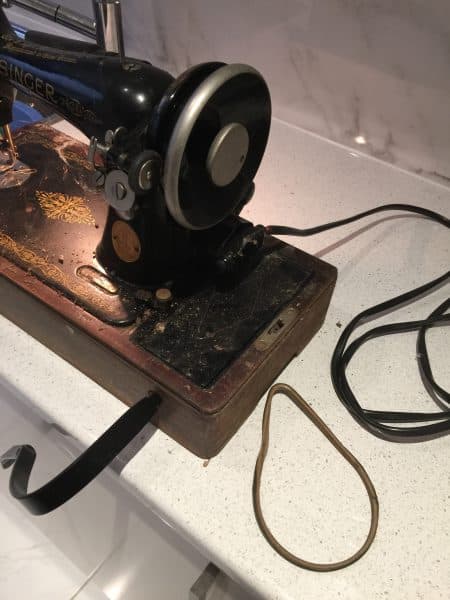
I fitted the leg press. I I turned it on and to my surprise the lamp still worked. I oiled the machine well and cleaned with sewing machine oil. The motor ran but the machine did not stitch. I turned the hand wheel a little but the machine was seized. This is the driest machine I think I’ve ever come across. It took many multiple oilings and manual persuasion to achieve minimal movement. First I thought the belt must have perished, but it hadn’t, that was also just parched, being leather. So I wet it and oiled that too.
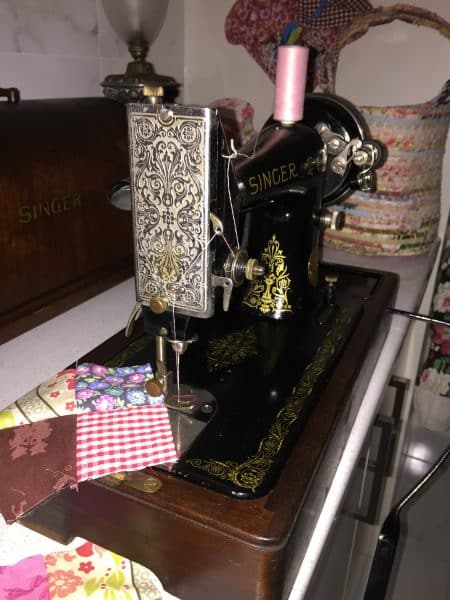
She made her first stitches after 50 years or thereabouts. It sews beautifully.
The Bentwood case was also very dry, dirty and parched. I cleaned it up with a lint free cloth doused in vinegar and linseed oil. It came up very well I think.
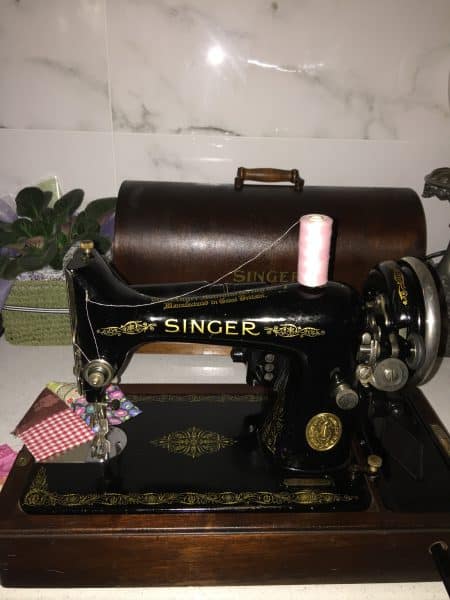
The faceplate is very ornate and the overall appearance of the machine is very pretty and desirable.
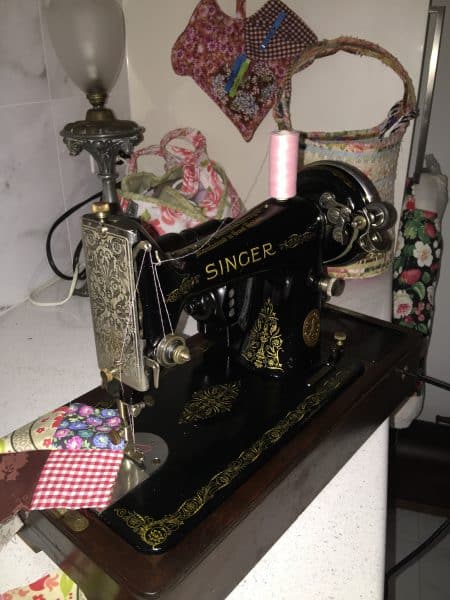
The 99s I believe are considered to be the 3/4 portable version of the Singer 66. Although not as small and light as a featherweight, these machines are still portable, very attractive, make a beautiful stitch and are easier to find.
Thanks for joining me today. If you enjoyed this post, you may also like Singer 31K20 Industrial Treadle 1937
Quilting Nasturtiums Free Motion Singer 201K Treadle
Susie

